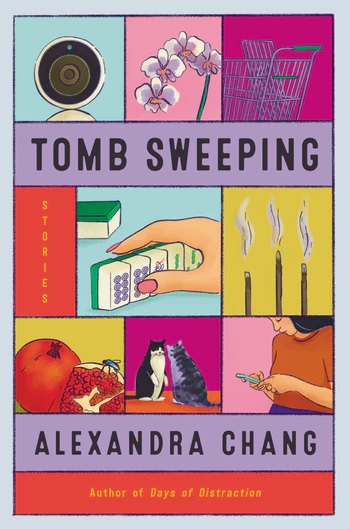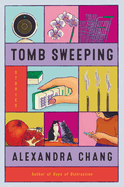Semicolon Bookstore, Chicago, Ill., Switching to Nonprofit Model
 |
|
| Danielle Mullen at Semicolon | |
Semicolon Bookstore in Chicago, Ill., is switching to a nonprofit model, Block Club Chicago reported.
The bookstore is temporarily closed while owner Danielle Mullen finalizes the business model change and carries out some renovations to Semicolon's interior. Mullen will bring in more tables and chairs as well as adjust the shelves to allow more people to gather. Once she reopens on August 1, she plans to start hosting at least two events per week focused on community learning.
Supporting public schools and literacy has been a part of Mullen's mission since she opened Semicolon in 2019 but, as she explained to Block Club, those efforts were all supported by book sales and as sales have slowed over the past year, so have the store's community endeavors. It was frustrating, and Mullen felt "like our mission was not being completed."
Now, as a nonprofit, Semicolon will have access to grants and other forms of funding and will no longer have to rely on book sales to support its mission. "It only makes sense. We want to be able to always support the community however we can. And opening ourselves up for grants makes that a lot easier."
In an Instagram post announcing the change, Mullen wrote: "Last year, I found myself becoming increasingly disenchanted by the process of owning the shop because as times got harder we couldn't give as much as I’d become accustomed to. I had to choose what I wanted the future of bookselling in my space to represent and I'm grateful to my bookselling besties who talked me through it and helped me figure everything out."












 Trinity University Press is launching an imprint called Tinta Books that will focus on Mexican and Mexican American culture, history, and current affairs. Tinta Books will publish five to 10 books a year. Yvette Benavides, a Texas journalist, radio host, and creative writing professor, will be editor-at-large.
Trinity University Press is launching an imprint called Tinta Books that will focus on Mexican and Mexican American culture, history, and current affairs. Tinta Books will publish five to 10 books a year. Yvette Benavides, a Texas journalist, radio host, and creative writing professor, will be editor-at-large.
 "
" The Hens, a Peacock, and the Enormous Egg
The Hens, a Peacock, and the Enormous Egg The 15 short stories in Alexandra Chang's insightful second book, Tomb Sweeping, feature Asian and Asian American characters facing lost or altered relationships. In each selection, a conflict arises when technology or a chance of success is at odds with tradition or with valuing one's family.
The 15 short stories in Alexandra Chang's insightful second book, Tomb Sweeping, feature Asian and Asian American characters facing lost or altered relationships. In each selection, a conflict arises when technology or a chance of success is at odds with tradition or with valuing one's family.